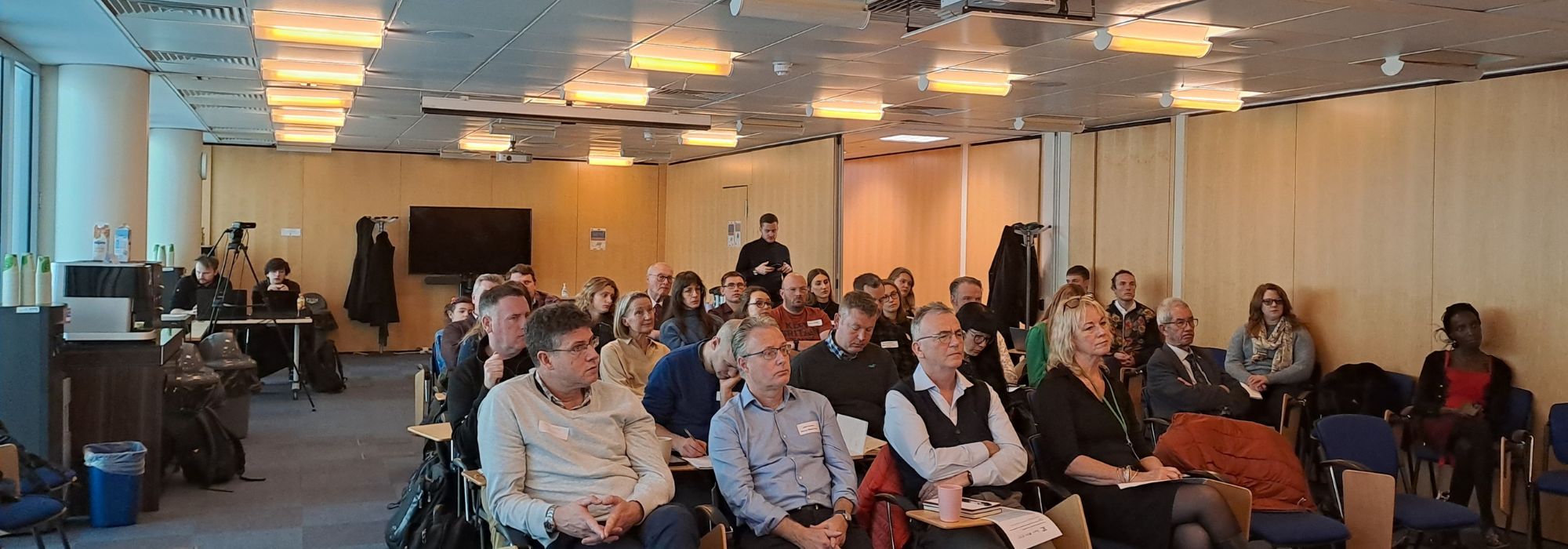Plastics Action National Conference: The recap
The Plastics Action National Conference was a great success, involving inspiring and thought-provoking discussions – thanks to a host of fantastic speakers and panellists and an active audience.
Plastics Action is a three-year initiative funded by The National Lottery Community Fund to investigate and establish how local community clean-up activity on rivers might be effectively expanded on river systems across the country. The conference was designed to bring together both local communities and strategic-level national bodies in the public, private, and third sector, and to identify key individuals who may interested in joining a Steering Group.
We heard about MP Fleur Anderson’s campaign to eliminate plastic in wet wipes through legislation and Keep Britain Tidy (KBT)’s crusade against littering (especially of cigarette butts). KBT CEO Allison Ogden-Newton said that the UK produced 2.5 million tonnes of plastic packaging ever year and that she wanted to see more recyclable products coming onto the market, something where both corporates and government have a role to play.


Experiences of volunteers were presented by speakers from charities across England. Speakers highlighted the impressive amounts of litter collected by volunteers and their vital role in citizen science. Friends of the River Crane’s Rob Gray highlighted different methods addressed to tackle plastic waste, including the role of trees in intercepting litter and signage in litter-hotspots. River Care’s Lynsey Stafford said that 98% of the volunteers that took part in their Anglian Region programmes felt more in tune with their local community after participating in their events, with one saying: “I think that it has improved community spirit and people appreciate our efforts.”
Iwan Jones talked about how the ‘Preventing Plastic Pollution’ project works on tackling plastic pollution from source to sea, using a catchment-based approach. Action for the River Kennet’s Charlotte Hitchmough spoke about how clean-ups can unite different demographics within the community and even connect the community with the past, as litter-picking volunteers discovered old artifacts such as a medieval stone lion in their local river.

Panel discussions involved lively audience participation and highlighted pertinent points relating to the global plastics crisis, discussing the potential recyclability of collected litter (a tall ask as a lot of it is often dirty) and the role of planned extended producer responsibility (EPR) legislation. Discussions addressed the need for systemic change so that the seemingly endless streams of litter in our waterways can be drastically reduced by government, corporate, and NGO action. Indeed, monumental-scale litter-picking and river clean-up work needs to be combined with campaigning to turn off the tap (avoiding just ‘mopping the floor) so as to prevent plastic waste production and release into our waterways in the first place. The need for increased education about the plastic crisis in schools was addressed, to inspire future generations to sustain the dedication and activism of clean-up groups.

Based on the discussions and points addressed at the conference, an ambitious and deliverable Roadmap and an Action Plan will be developed with the input of conference attendees and under the leadership of a soon-to-be formed Steering Group, focusing on upscaling and sustaining valuable community clean-up action.
